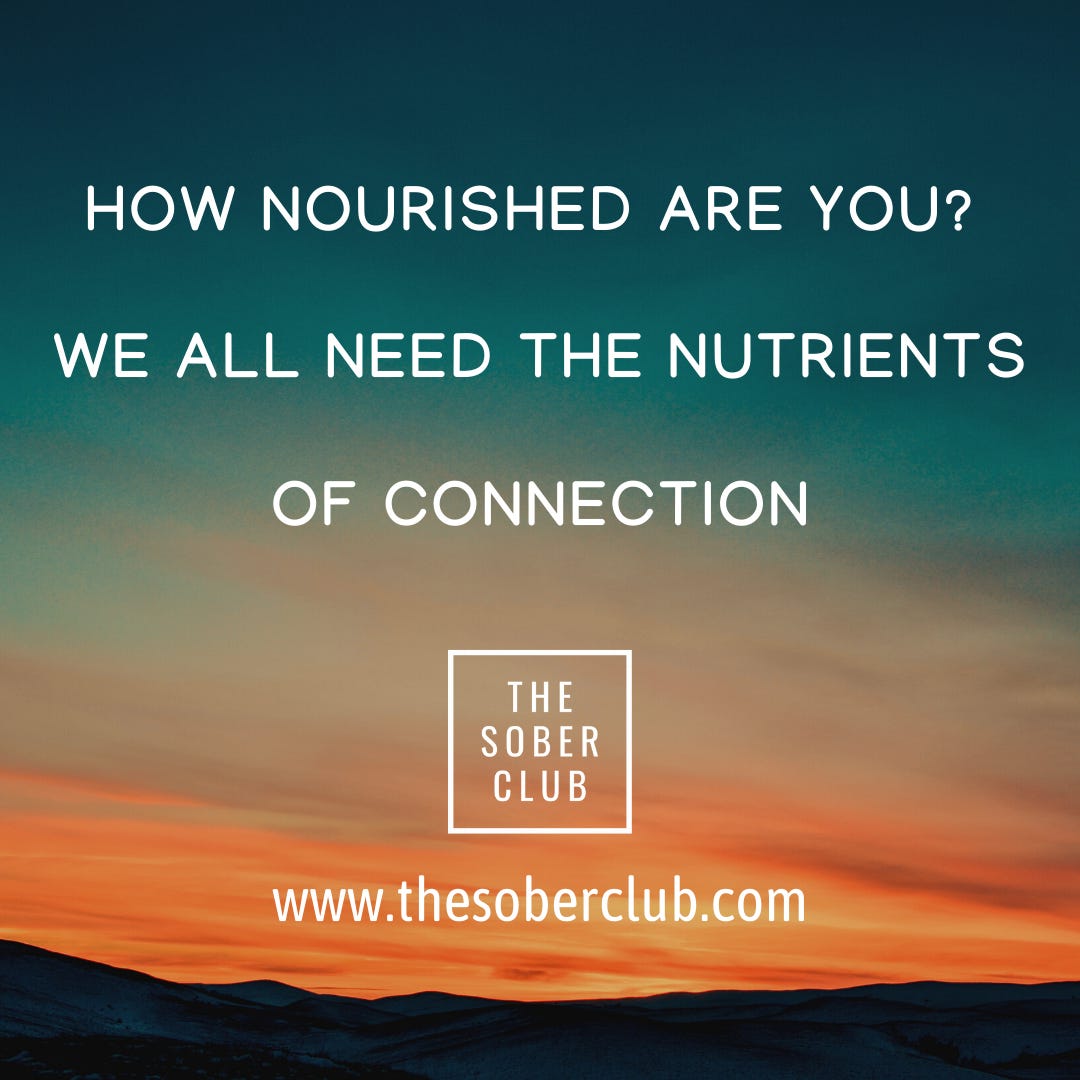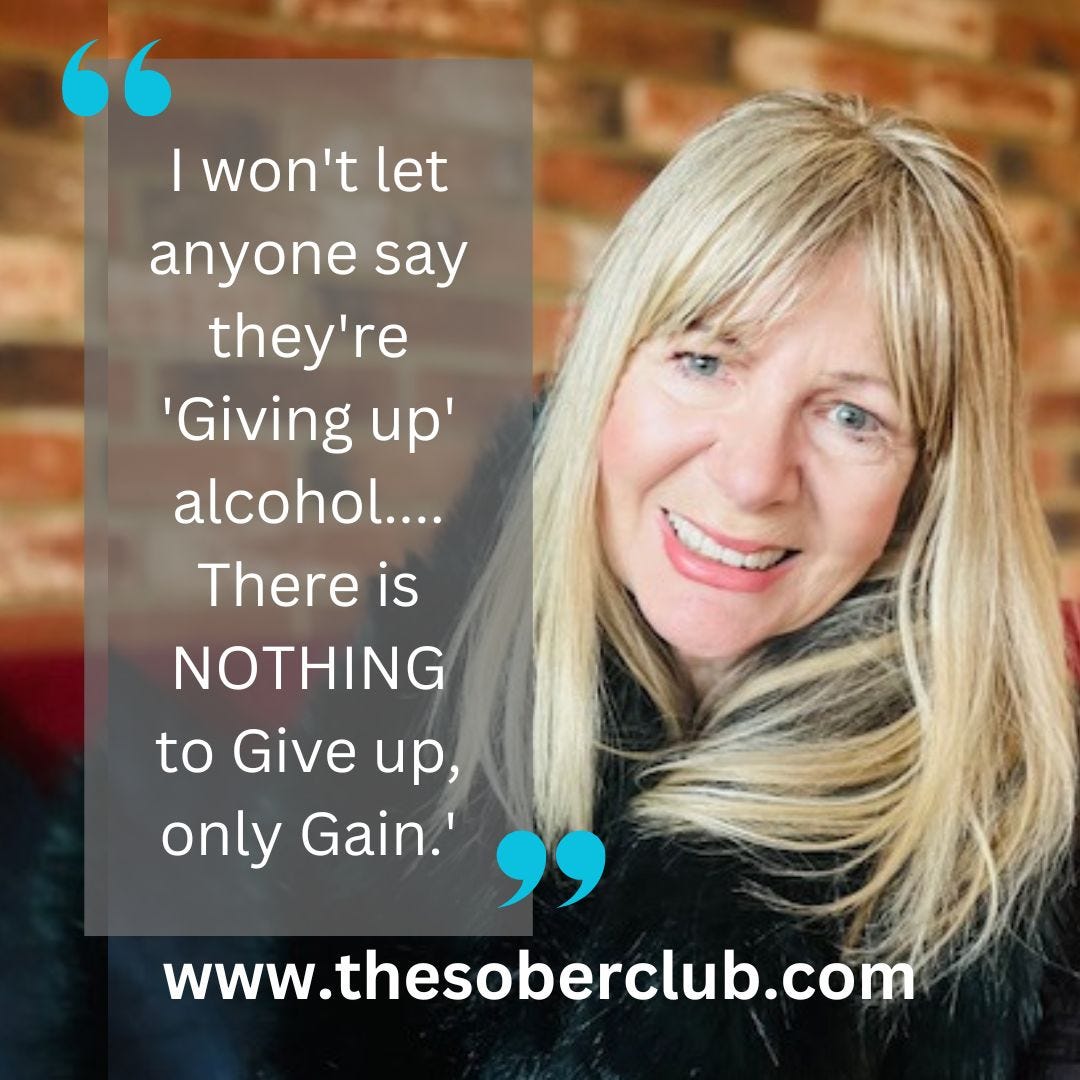In recent months, medications like Mounjaro - a weight-loss injection also used to treat type 2 diabetes have made headlines as powerful tools in the fight against obesity. They’re now going to be rolled out in the UK, and those ‘in need’ with a BMI of 40 or over, will be able to get it from their GP or a community clinic. For many, these drugs promise hope: easier weight loss, better blood sugar regulation, and improved health outcomes. And for some, that promise may be real. The idea is that you aren’t hungry, so you eat less, and potentially lose 20 per cent of your body weight.
But as with anything that impacts our bodies and brains so directly, it’s worth pausing for a deeper conversation, and as a holistic sober coach I have already encountered a client who is hoping for a ‘quick fix’ with both the jab and quitting alcohol – all in one hit – magic wand waved….Except its not quite like that.
Lets start with the jabs. One concern that’s been quietly circulating is around the FDA “black box” warning for Mounjaro (tirzepatide) regarding the risk of thyroid tumours based on animal studies. The warning states that in studies with rodents, tirzepatide caused dose-dependent and treatment-duration-dependent thyroid C-cell tumours, both cancerous and non-cancerous tumours. The risk was observed to increase with higher doses and longer duration of use. However, the human relevance of these findings is not fully determined, as the studies were conducted in rats, and it remains unclear if Mounjaro causes thyroid C-cell tumours in humans. Due to this uncertainty, Mounjaro is contraindicated in patients with a personal or family history of MTC or multiple endocrine neoplasia syndrome type 2.
The animal data is significant enough to warrant the FDA's strongest warning, current human clinical trials have not definitively established a causal link between Mounjaro and thyroid cancer. Some observational studies suggest a potential association, but others, including large-scale analyses, report no significant increase in thyroid cancer risk in humans, particularly in the short term. Of course patients should discuss the risks and benefits with their healthcare provider, especially if they have thyroid-related risk factors.
Ref: https://www.accessdata.fda.gov/drugsatfda_docs/label/2022/215866s000lbl.pdf
But beyond the headlines and safety studies, there's another layer of this conversation that often goes unspoken - particularly for those in the alcohol-free or sober-curious community.
When You Stop Drinking, What You Eat Matters.
Alcohol affects the body in complex ways, especially at the level of the brain. When someone begins to reduce or eliminate alcohol, the body’s neurotransmitter systems, especially dopamine, serotonin, and GABA begin to recalibrate. And ‘real’ food plays a crucial role in supporting that healing process.
In the early weeks of quitting alcohol we really need nutrient-dense foods help to:
Rebuild brain chemistry
Support mood regulation
Stabilize blood sugar (which helps reduce cravings)
Replenish depleted vitamin and mineral stores
When people rely on medications that suppress appetite, whether by design or as a side effect - it can unintentionally undermine that healing.
As a holistic sober coach I always ask clients to focus only on what they’re gaining, forget about weight loss, forget about faddy diets and fasting, because;
‘Not drinking and not eating properly at the same time’? That’s a lot for a recovering brain to manage.
It can be confusing for the nervous system. It can increase emotional volatility. It can lead to feelings of depletion and confusion that feel eerily similar to early alcohol withdrawal, even if someone has been sober for a while.
This Isn’t About Blame - It’s About Balance
Let’s be clear: there is no shame in wanting to feel better in your body. There is no blame for using tools that offer support. But we do need to hold space for nuance, especially when emotional healing and physical health are so deeply entwined.
For many, food is not just fuel, it’s comfort, it’s about being social, its memory, it’s identity. And for those of us navigating life without alcohol, food often becomes a new way of grounding. It can be both healing and triggering. It’s a delicate dance. We all know about the sugar monster who arrives in early sobriety – sometimes we have to ask: Is it actually that I want some SWEETNESS in my life?
As humans we do seek pleasure, its entirely normal, that’s why I always say when it comes to selecting good grown up alcohol free drinks, ‘Keep the ritual, change the ingredients’, its important not to feel deprived, or as if you’re missing out.
For those considering weight-loss injections, especially those on a sobriety journey, it’s important to ask:
Am I still nourishing my body, even if I’m eating less?
Do I understand what my body and brain truly need during this phase?
Is my relationship with food improving - or am I replacing one form of control with another?
These aren’t easy questions. But they are worth asking.
A Holistic Approach to Healing and Recovery.
Ultimately, sobriety isn’t just about what we remove from our lives; it’s also about what we choose to add. Community. Nourishment. Purpose. Pleasure. And, yes - real food.
In my opinion, eating well while quitting alcohol isn’t just helpful, it’s foundational. I interviewed the wonderful Julia Ross, author of The Mood Cure, and she explained that it is essential to eat well in the early weeks, protein for example, is key, it’s a ‘medicinal diet’ as she puts it, - it just so happens its ‘REAL FOOD’ And that doesn’t have to mean eating “perfectly” or obsessively. It means eating in a way that supports both emotional resilience and biological repair.
That’s something no jab can replace. Whether you’re sober, sober-curious, or navigating health changes of any kind - your body deserves to feel nourished, not just managed.
And you deserve support that sees all of you.
In case you are sober curious and about to ditch the booze, trust me – Focus on that one thing, it’s the most important thing you will ever do for your health and wellbeing. If you genuinely have a lot of weight to lose, commit to that once you’re sober. You’ll be far more resilient, you’ll possibly have already made some healthier choices and dropped a few pounds without trying, and you will, almost certainly, have a greater sense of self esteem, when you can love yourself and have that sense of authenticity, you may find the need for another drug diminishes.
Join us in The Sober Club for in depth content around nutrition and mindset.





